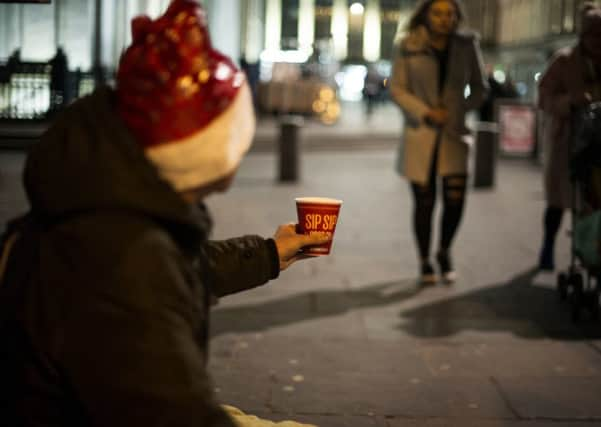Steve Cardownie: Freezing to death on our cities' streets


Since then a number of initiatives have been undertaken to highlight the issue and a plan of action has been drafted in an attempt to deal with, and resolve, this vexing problem.
While this is a serious matter for Edinburgh, rough-sleepers throughout the world have similar and sometimes greater issues to deal with, especially over the winter with Russia in particular experiencing huge numbers of rough-sleepers who freeze to death. According to the Homeless World Cup’s organisers, there are around five million Russians who sleep rough and are hit hard by freezing conditions. In the severe winter of 2013/14 in St Petersburg, more than 1,000 rough-sleepers died according to official figures. In Moscow the situation is even more acute with the number of homeless people living in the city officially estimated at 6,000 but unofficially put at 60,000. Although estimates vary, the general view is that between 450 and 500 homeless people die every winter in Moscow, most of whom are rough-sleepers who have frozen to death in temperatures that are often minus 25 degrees Celsius and lower.
Advertisement
Hide AdAdvertisement
Hide AdThe UK has also witnessed deaths among its rough-sleepers due to harsh winters. However the Office for National Statistics, in answer to a query about homeless mortality, stated that “the underlying cause of death is defined as the disease or injury that initiated the train of morbid events directly leading to death. By definition, homelessness cannot be selected as a cause of death or used in mortality coding, so we are unable to provide you with statistics on those who have died due to being homeless.”
This has not stopped various organisations making the case that homelessness can, and often does, lead to an untimely death. The BBC reported that homeless people die 30 years younger than the national average and homeless people reportedly have a life expectancy of just 47. These statistics were provided as a result of research by the University of Sheffield.
The mental anguish of homeless people was also borne out by this research which found that homeless people are nine times more likely to kill themselves than the general population.
Add to this the number of homeless people who die prematurely each year and the scale of the crisis begins to unfold. Last year at least 39 homeless people died in Glasgow and, according to Glasgow City Council, this figure did not include “deaths of rough-sleepers who are not from Glasgow or not engaged with our services”. Only five of the 39 people who died were over the age of 60, the vast majority falling between the ages of 25 to 59 and, although the exact numbers may vary, this picture is unfortunately mirrored throughout Scotland.
Advertisement
Hide AdAdvertisement
Hide AdResearch reliably informs us that it is not just discomfort that rough sleepers have to endure but also the very real prospect of an early grave looming on the horizon.
Homelessness is a crisis which affects us all, not just in Scotland but throughout the world, and hopefully the light currently being shone on this issue will lead to measures being taken that will make a real difference.